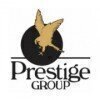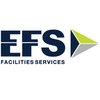Assistant Facility Manager
30+ Assistant Facility Manager Interview Questions and Answers

Asked in BramhaCorp

Q. What are the key aspects of facilities management for residential and commercial properties, including equipment oversight, cost management, client relations, compliance, and vendor management?
Facilities management involves overseeing operations, ensuring compliance, managing costs, and maintaining client relationships in properties.
Equipment Oversight: Regular maintenance schedules for HVAC systems to ensure efficiency and longevity.
Cost Management: Implementing energy-saving measures to reduce utility costs, such as LED lighting upgrades.
Client Relations: Conducting regular surveys to gather feedback from residents or tenants to improve services.
Compliance: Ensur...read more

Asked in Colliers India

Q. How do you monitor electrical consumption and what actions do you take to save energy?
Monitoring electrical consumption involves tracking usage patterns and implementing energy-saving actions.
Regularly review electricity bills to track consumption trends
Install energy monitoring devices to track real-time usage
Implement energy-efficient lighting and appliances
Encourage staff to turn off lights and equipment when not in use
Utilize natural light and adjust thermostat settings for energy savings
Assistant Facility Manager Interview Questions and Answers for Freshers

Asked in LivSpace

Q. How do you handle an irate client?
Listen actively, empathize, apologize, offer solutions, and follow up.
Remain calm and professional
Listen actively and let the client vent
Empathize with their situation and apologize for any inconvenience
Offer solutions to resolve the issue
Follow up with the client to ensure their satisfaction

Asked in Adani Group

Q. What qualities do you look for when selecting a candidate?
I look for strong communication skills, problem-solving abilities, and a proactive approach to facility management.
Strong communication skills: Ability to clearly convey information to staff and vendors, ensuring smooth operations.
Problem-solving abilities: Quick thinking in addressing unexpected issues, like a sudden equipment failure.
Proactive approach: Regularly conducting facility inspections to identify and address potential issues before they escalate.
Team collaboration...read more

Asked in BramhaCorp

Q. As a facility manager, you will be responsible for both residential and commercial sites. What are your plans?
As an Assistant Facility Manager, I ensure efficient operations and maintenance of both residential and commercial properties.
Conduct regular inspections to ensure safety and compliance with regulations.
Manage vendor relationships for maintenance services, such as plumbing and electrical work.
Implement energy-saving initiatives to reduce operational costs, like LED lighting upgrades.
Coordinate tenant requests and resolve issues promptly to maintain satisfaction.
Develop and ov...read more

Asked in Adani Group

Q. Have you reviewed the employee after six months of employment?
Yes, I have conducted a thorough review of the employee's performance after their six-month probation period.
Conducted a performance evaluation meeting to discuss strengths and areas for improvement.
Gathered feedback from colleagues and supervisors to provide a well-rounded assessment.
Set clear goals for the next six months based on the review findings.
Provided constructive feedback and recognized achievements to motivate the employee.
Assistant Facility Manager Jobs




Asked in TableSpace Technologies

Q. What are the best practices for planning manpower?
Effective manpower planning ensures optimal staffing, enhances productivity, and aligns workforce with organizational goals.
Assess current workforce skills and identify gaps. For example, if a facility requires maintenance expertise, ensure qualified staff are available.
Forecast future staffing needs based on projected workload. For instance, if a new building is opening, plan for additional janitorial staff.
Implement flexible staffing models, such as part-time or on-call wor...read more


Q. How many languages do you speak?
I am fluent in multiple languages, which enhances communication and collaboration in diverse environments.
Fluent in English and Spanish, allowing effective communication with a wider audience.
Basic knowledge of French, useful for engaging with French-speaking clients.
Understanding of Mandarin, which is beneficial in a globalized workplace.
Share interview questions and help millions of jobseekers 🌟

Asked in JDSA

Q. What types of complaints did you face?
Complaints related to facility management
Maintenance issues
Cleaning and janitorial concerns
Temperature and HVAC problems
Security and access control
Parking and transportation
Equipment malfunction
Noise disturbances
Space allocation and utilization

Asked in Udaan

Q. Are you available for emergency work or calls?
I am available for emergency work and calls.
I understand the importance of responding quickly to emergency situations.
I am willing to be on-call and available outside of regular work hours.
I have experience handling emergency situations in previous roles.
I am able to prioritize tasks and manage my time effectively to ensure prompt response to emergencies.


Q. Transformer operation & maintenance with safety.
Transformer operation & maintenance with safety involves regular inspections, testing, and preventive maintenance to ensure efficient and safe operation.
Regularly inspect transformers for signs of damage, leaks, or overheating.
Perform routine testing of transformer oil to check for contaminants and ensure proper insulation.
Maintain proper ventilation and cooling systems to prevent overheating.
Ensure proper grounding and electrical connections to minimize the risk of electrica...read more

Asked in CBRE

Q. What is the SOP for handling chemicals and the related processes?
SOP for chemicals involves proper handling, storage, and disposal procedures to ensure safety and compliance.
Chemicals should be stored in designated areas with proper labeling and signage
Employees should be trained on proper handling and use of chemicals
Disposal of chemicals should follow local regulations and guidelines
Regular inspections and maintenance of chemical storage areas should be conducted
Emergency response procedures should be in place in case of spills or accide...read more

Asked in JLL

Q. What is Fire system
A fire system is a set of equipment and procedures designed to detect and extinguish fires in a building or area.
Fire alarm systems detect smoke or heat and alert occupants to evacuate the building.
Fire suppression systems use water, foam, or gas to extinguish fires.
Fire sprinkler systems automatically spray water on a fire to control or extinguish it.
Fire drills and training help occupants know what to do in case of a fire.
Regular maintenance and testing of fire systems is n...read more
Asked in Gointegra Facility Management

Q. What about STP plant ..?
STP plant stands for Sewage Treatment Plant, which is used to treat wastewater from residential and commercial buildings.
STP plants use physical, chemical, and biological processes to remove contaminants from wastewater.
The treated water can be reused for irrigation, industrial processes, or discharged into water bodies.
STP plants help in reducing pollution and protecting the environment by treating wastewater before it is released back into nature.

Asked in Prestige Group

Q. What degree did you graduate with?
I graduated with a degree in Facility Management, focusing on operations, maintenance, and project management skills.
Bachelor's degree in Facility Management from XYZ University.
Courses included building systems, project management, and sustainability.
Internship experience at ABC Corporation, managing facility operations.
Certified Facility Manager (CFM) credential obtained post-graduation.
Asked in JDSA

Q. Which type of reports have you prepared?
Reports prepared by an Assistant Facility Manager include maintenance, safety, and compliance reports to ensure efficient operations.
Maintenance Reports: Track repairs and upkeep of facilities, e.g., HVAC maintenance schedules.
Safety Reports: Document safety inspections and incidents, e.g., fire drill outcomes.
Compliance Reports: Ensure adherence to regulations, e.g., health and safety compliance checks.
Budget Reports: Monitor facility expenses and forecasts, e.g., monthly ut...read more

Asked in CBRE

Q. Chiller Type IKW and Types of Compressor
Chiller type IKW refers to Indirect Water-Cooled chillers. Types of compressors commonly used in chillers include reciprocating, scroll, screw, and centrifugal compressors.
Chiller type IKW stands for Indirect Water-Cooled chillers
Types of compressors commonly used in chillers include reciprocating, scroll, screw, and centrifugal compressors

Asked in LG Soft India

Q. Are you comfortable with this job?
Yes, I am comfortable with this job.
I have relevant experience and skills for this role
I am excited about the opportunity to contribute to the facility's success
I am confident in my ability to handle the responsibilities of the position


Q. planning of man power
Planning of man power involves assessing staffing needs, creating schedules, and ensuring adequate coverage.
Assess staffing needs based on facility size, services offered, and peak hours of operation
Create schedules that balance workload and employee availability
Ensure adequate coverage by cross-training employees and having backup plans in place
Regularly review and adjust staffing plans based on changing needs and budget constraints

Asked in Bestech Group

Q. What safety checks do you perform on DG sets?
Regular checks of DG sets and safety measures are essential for ensuring smooth operations and preventing accidents.
Regularly inspect DG sets for any signs of wear and tear
Test backup power supply regularly to ensure it is functioning properly
Ensure all safety measures are in place, such as fire extinguishers and emergency exits
Train staff on emergency procedures and safety protocols
Keep records of maintenance checks and safety drills

Asked in CBRE

Q. How do you manage your work ground?
Effective management of a work ground involves organization, communication, and proactive problem-solving.
Establish clear communication channels: Use tools like Slack or email for updates.
Create a detailed schedule: Implement a weekly planner to allocate tasks efficiently.
Conduct regular inspections: For example, weekly walkthroughs to identify maintenance needs.
Encourage team collaboration: Organize monthly meetings to discuss challenges and solutions.
Implement safety protoc...read more

Asked in Colliers India

Q. How do you save energy?
I save energy by implementing energy-efficient practices and technologies.
Utilizing programmable thermostats to regulate heating and cooling
Switching to LED lighting to reduce electricity consumption
Implementing motion sensors to control lighting usage
Regularly maintaining HVAC systems for optimal efficiency

Asked in Colliers India

Q. Why are beam detectors used?
Beam detectors are used for early detection of smoke or fire in large open spaces.
Beam detectors are ideal for spaces with high ceilings or areas where traditional smoke detectors may not be practical.
They work by projecting a beam of light across a space and detecting any disruptions caused by smoke particles.
Beam detectors are commonly used in warehouses, atriums, and other large open areas.
They provide early detection of smoke or fire, allowing for quicker response and eva...read more

Asked in Efs Facilities Services

Q. What is Facility Management?
Facility management involves coordinating and managing physical spaces and services to ensure efficient operations and safety.
Involves maintenance of buildings, grounds, and equipment.
Ensures compliance with safety regulations, such as fire codes.
Manages space utilization, optimizing layouts for efficiency.
Coordinates vendor services, like cleaning and security.
Involves budgeting and financial management for facility operations.


Q. How do you handle risk situations?
Effectively managing risk involves identifying, assessing, and mitigating potential issues to ensure safety and operational efficiency.
Identify potential risks: Conduct regular assessments to pinpoint areas of concern, such as equipment failure or safety hazards.
Assess the impact: Evaluate the severity and likelihood of each risk, prioritizing them based on potential consequences.
Develop a mitigation plan: Create strategies to minimize risks, such as implementing safety proto...read more

Asked in Sodexo

Q. What were your responsibilities at your previous site?
Managed daily operations, maintenance, and staff coordination to ensure a safe and efficient facility environment.
Oversaw facility maintenance, ensuring all equipment was operational and safe, such as HVAC systems and emergency generators.
Coordinated with vendors for regular inspections and repairs, including plumbing and electrical work, to maintain compliance with safety standards.
Managed a team of custodial staff, implementing training programs that improved cleaning effic...read more

Asked in Orchid Pharma

Q. What is a condenser?
A condenser is a device that converts vapor into liquid, commonly used in refrigeration and air conditioning systems.
Condensers are essential in HVAC systems for heat exchange.
They cool refrigerant vapor, turning it into liquid.
Examples include air-cooled and water-cooled condensers.
In power plants, condensers help in steam cycle efficiency.

Asked in Torrent Cables

Q. Single Line Diagram
A single line diagram is a simplified diagram that shows the electrical connections and components of a system using a single line.
Single line diagrams are used to represent complex electrical systems in a simplified manner.
They show the connections between various components such as transformers, circuit breakers, and switches.
Each component is represented by a symbol and connected by lines to show the flow of electricity.
Single line diagrams are commonly used in power distr...read more

Asked in JLL

Q. Co efficient of energy
The coefficient of energy is a measure of the efficiency of energy transfer in a system.
The coefficient of energy is calculated by dividing the useful energy output by the total energy input.
It is often used to evaluate the efficiency of energy conversion processes.
For example, in a heating system, the coefficient of energy would indicate how much of the input energy is actually used to heat the space.
A higher coefficient of energy indicates a more efficient system.

Asked in JLL

Q. load of the UPS system
The load of the UPS system refers to the amount of power being drawn from the system at a given time.
The load of the UPS system is typically expressed as a percentage of the total capacity of the system.
Monitoring the load of the UPS system is important to ensure it is not being overloaded, which can lead to system failure.
For example, if a UPS system has a total capacity of 1000 watts and is currently drawing 500 watts, the load would be 50%.
Interview Experiences of Popular Companies






Calculate your in-hand salary
Confused about how your in-hand salary is calculated? Enter your annual salary (CTC) and get your in-hand salary


Reviews
Interviews
Salaries
Users










